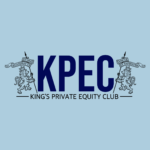 By Angeline Wang, Head of Corporate Relations at King’s Private Equity Club
By Angeline Wang, Head of Corporate Relations at King’s Private Equity Club
Opportunities for PE firms
There have been different opportunities that SPACs provide for private equity firms already using them, new adopters and sellers. SPACs can be used as a co-investment vehicle that allows private equity sponsors to execute side-by-side transactions with less leverage and more equity. Private equity firms can seem organically aligned with the SPAC structure and mode due to their background in origination, financing and value creation. Furthermore, most reverse merger structures have deals that need more modest outlays than traditional buyouts, while a firm sponsoring a SPAC usually buys 2-3% of shares offered in a public listing, getting a larger economic stake in the business for less upfront investment. SPACs also draw from public backers, allowing them to broaden their investment base and get rid of the time commitment and other difficulties caused by raising funds from limited partners.
Liquidity is something else to consider. The sponsors of a SPAC typically line up an anchor commitment through a PIPE deal with an outside investor. This offers possibilities for additional liquidity after a SPAC goes public. For example, the hedge fund, Millennium Management, purchased a 7.8% stake in RedBird’s sports-focused SPAC after an IPO. The SPAC vehicle creates a public company where equity as a founder is structured, and warrants are exercisable within 30 days after the deal. The shares that founders have are very significant because they amount to 20% of the size of the SPAC. There seems to be good evidence that private equity firms issuing a SPAC would mean good economics. Since founders don’t need to give up as much control when merging with a SPAC, several high-profile companies have taken the SPAC route already. Virgin Galactic and DraftKings both saw their stock prices surge since their mergers.
 Many private equity firms have a history with SPACs. Private equity firms have been using this vehicle to take companies public for decades. Notable examples include the Gores Group, an LA-area firm by Alec Gores, which was an early adopter of the tool. For early adopters of SPACs, the recent boom has not had a major impact other than validating their method, and 2020 was a continuation of a longtime strategy. But there are also many firms inserting themselves into space for the very first time because of the popular path SPACs have carved out for private equity firms to capitalise on the market volatility created by the pandemic. The Founder and CEO of The Gores Group noted that SPACs offer seller flexibility, efficiency and better valuation certainty. The firm has backed 6 SPACs in the past years.
Many private equity firms have a history with SPACs. Private equity firms have been using this vehicle to take companies public for decades. Notable examples include the Gores Group, an LA-area firm by Alec Gores, which was an early adopter of the tool. For early adopters of SPACs, the recent boom has not had a major impact other than validating their method, and 2020 was a continuation of a longtime strategy. But there are also many firms inserting themselves into space for the very first time because of the popular path SPACs have carved out for private equity firms to capitalise on the market volatility created by the pandemic. The Founder and CEO of The Gores Group noted that SPACs offer seller flexibility, efficiency and better valuation certainty. The firm has backed 6 SPACs in the past years.
New adopters include well-known names in the private equity industry like Apollo Global Management, KKR and Bain Capital. They have all issued their own SPACs in recent times. As a reputable firm with $414 billion in assets under their management, Apollo Global Management registered their own blank-check company with the SEC and planned to raise $750 million. RedBird Capital Partners joined up with baseball executive Billy Beane, the inspiration for ‘Moneyball’, to launch a SPAC aimed to acquire a professional sports team and raised $575 million in an August IPO. It is notable that 10% of SPACs raised over the past year have been private equity-backed. New blank-check companies set up by private equity firms have contributed to the spike in SPAC deal count and capital raised. Private Equity firms have been a crucial component of the SPAC boom and cited the advantages of circumventing the arduous and expensive IPO process while taking companies public.
In addition, for sellers, SPACs also mean a fourth liquidity option for private equity firms. The boom is also very appealing for private equity firms with potential targets of SPACs. SPACs have eased the burden of finding new buyers for private equity portfolio companies as well. Private equity firms are fielding many offers from SPACs searching to buy private equity portfolio companies. This means that firms are benefiting from the increased liquidity in the market because it makes exiting portfolio companies an easier process. SPACs mean that there is increased liquidity certainty for private equity firms who are sellers as opposed to an illiquid interest in private portfolio companies. This increases options for firms beyond the typical exit strategies of selling to corporate buyers, other private equity firms and traditional IPOs.
Since the start of the increase in SPAC interest, 30% of companies identified by SPACs were owned by private equity firms. 4-6 years after the acquisition is the period in which private equity firms generally seek to exit, and more than 2800 companies backed by private equity firms have come up to that time frame. This means that many private equity firms are looking for buyers. The rise in SPACs allows them to profit from selling to a one. A merger with a SPAC is an attractive option because they can get a good price for an exit when SPACs are scrambling to find portfolio companies before their two-year time limit comes up.
Compared to a traditional IPO, this sale process is easier, cheaper and faster, with the economics being more secure. SPACs are appealing for sellers because they act as a reverse merger where companies only need to negotiate the price with a single investor, the SPAC. There is no hassle of negotiating with a wide range of prospective backers that come with an IPO, which is attractive due to the stock market volatility of a pandemic.
Moreover, selling to a SPAC also looks attractive when compared with a trade sale because trade sales may mean only a limited number of appropriate strategic acquirers for a specific asset. With SPACs, there are many potential SPAC transactors for private equity firms to pick and choose from. These deals will mean more favourable terms such as lower promotes and longer lockup periods.
But the benefits bleed far past private equity firms with US-based assets. As competition for deals increase, SPAC buyers are venturing abroad for the purchase of companies in Europe and Asia as well.
Challenges posed to Private Equity firms
The SPAC boom affects firms beyond those that have sponsored their own, so there are also challenges and competition for private equity firms. Conflicts of interest are a concern raised by limited partners who question situations where private equity firms turn to sponsor their own SPACs. This was an issue raised during the PIPE financing collapse where Vista Equity Partners attempted to merge a few of their portfolio companies with a SPAC sponsored by Apollo.
Limited partners are also concerned about conflicts of interest when reviewing SPACs when a SPAC and a fund are pursuing the same opportunity. And a final concern is over the way in which private equity firms who are sponsors are managing their time across funds and SPAC vehicles. There are some ways in which firms have tried to combat these concerns. Some funds are trialling avenues of sharing their economics more clearly with their limited partners by placing a SPAC inside the fund or effectively negotiating a co-investment with the SPAC.
Challenges for private equity firms who are sponsors for their own SPACs also exist because a typical private equity deal is focused on value creation during the hold period. On the other hand, SPACs have a different focus that firms can be unfamiliar with, which is on target selection, acquisition process, and finding the right management team. There is the added reputation risk on private equity firms in the case that their SPACs perform badly. This would impact the sponsor’s broader fund complexes.
Furthermore, competition is a factor to take into account. Before the rise in SPAC popularity, firms already faced a lot of competition for high-quality assets. Even though SPACs do not always interact in the same space as private equity firms, there is enough of an intersection for these SPACs to be an issue for firms. SPACs are a threat to private equity firms so far that they can raise capital more quickly. They are offered in the open market, so the liquidity of SPACs is what appeals to more investors. This means that compared to private equity firms, SPACs may have more funds to offer in negotiations with private companies, putting them in a more advantageous position.
The rise of SPACs has also jeopardised private equity deal flow by increasing bidders for companies and pushing asset prices higher. This is a negative impact for private firms from the standpoint of deal flow and valuations. Even though Covid-19 stopped deal activity for months, valuations hardly changed in 2020. This was shown by the fact that the average private equity buyout traded at a multiple of 11 times, which was basically the same as the 11.1 times seen in 2019 and far above the 9.3 times at which deals were traded in 2007.
Even if there is not a continued fast speed of SPAC creations, more than US$166 billion already exists in trust. This means that SPACs have a large amount of capital that needs to be deployed over the coming two years. The average SPAC announces a deal valued at 4.4 times its capital raise. This is means there are worries for private equity firms even without a single new SPAC offering. The existing SPACs are already on the way to announce deals valued at more than US$700 billion – $800 billion over the next two years. The negative impact to private equity firms can be noted in the fact that in an average year for private equity, deal value comes up to around US$500 billion – $550 billion. There is an extremely high excess of capital thrown in the way of private companies. Thus, the SPAC boom may have played a role in the 29% drop in private equity-backed companies from 1441 in 2019 to 1019 in 2020.
On the other hand, a SPAC pullback dampens private equity investor worries because this would reduce competitions for a limited amount of targets, a rosy sign for private equity. Competition for PE firms from SPACs has lessened in the US due to the increasing volume of concerns over lack of oversight for SPACs. This development was facilitated by Clover Health and QuantumScape going public through SPACs where research firms Hindenburg Research and Scorpion accused them of misleading investors. This added to the culmination of unfavourable headlines which have disrupted the SPAC market. The effect of the possible regulation of SPACs on private equity firms may be positive if they stay away from the possible SPAC bubble. This means that it may be wise for private equity firms in the US to avoid this investment tool which has already raised the eyebrows of regulators.
Exclusive Offer: Get £100 off your Summer Internship Experience at Amplify Trading by clicking here or using our unique discount code at the checkout: MSAmplifySummer2021. Participants graduate from the course with a Diploma from the London Institute of Banking & Finance. For more information about the course, click here.
References
SPACs Bring More Opportunity — And Competition — To The Private Equity World
https://pitchbook.com/news/articles/private-equity-spacs-2020s
https://www.forbes.com/sites/zengernews/2021/04/27/5-lessons-from-the-rise-and-fall-of-spacs/
https://www.bloomberg.com/news/articles/2021-03-31/fca-begins-consulting-on-looser-spac-rules- in-bid-to-grab-market
https://www.theguardian.com/business/2021/mar/06/will-spacs-new-stars-of-corporate-finance- take-off-in-the-uk
https://www.marketwatch.com/story/the-spac-crackdown-hasnt-truly-begun-but-the-sec-is- obviously-considering-it-11617726415
https://www.linklaters.com/en/insights/publications/2020/march/private-equity-firms-are-facing- the-prospect-of-bank-style-regulation
https://www.lexology.com/library/detail.aspx?g=b1ed89c0-66c0-4c59-8688-3d6b38c187a3 https://www.ft.com/content/1224cfc3-c431-415e-9216-6cb3ab8f78d5 https://pitchbook.com/news/articles/SPACs-private-equity-SEC-regulations
King's Private Equity Club is a student society at King's College London, providing a high quality of networking, speakers, workshops and social events to the King's Community. Our goal is to improve our members understanding and employability.
